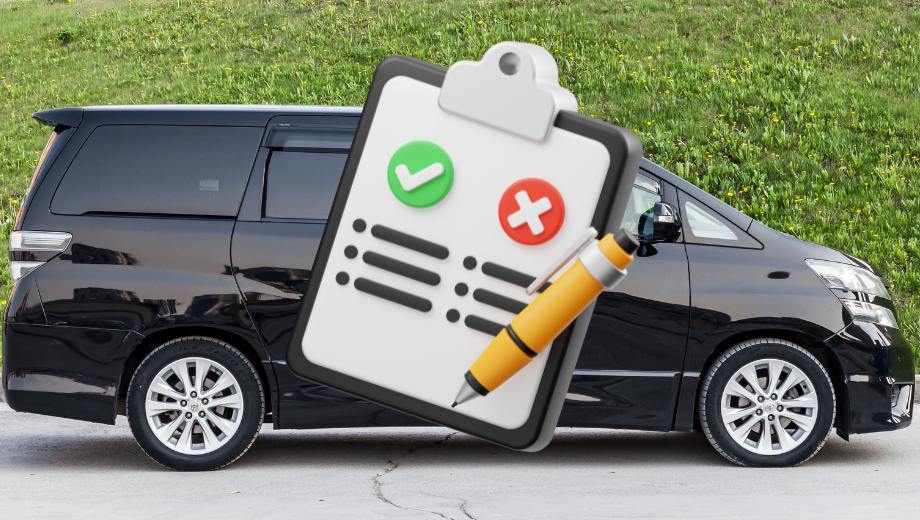In the vast world of automobiles, minivans have carved a unique niche. They’re not just vehicles; they’re a statement about family, functionality, and practicality. But is a minivan the right choice for everyone? This guide delves deep into the advantages and disadvantages of owning a minivan, helping potential buyers make an informed decision.
The Pros of Minivans
Minivans, often dubbed the workhorses of the family vehicle segment, offer a range of benefits that cater to a diverse group of drivers. From parents with multiple kids to those who simply crave space and versatility, here’s why many opt for this type of vehicle.
They’re very spacious
The roomy interior of minivans is undeniable. They provide ample space for both passengers and luggage, making them ideal for large families or those who frequently travel. This spaciousness ensures a comfortable ride, even on extended trips. For those who often find themselves struggling with cargo space, minivans can be a game-changer. List Of Minivans With Huge Cargo Spaces
They’re flexible
The hallmark of a good minivan is its flexibility. With configurable seats that can be folded or even removed, they cater to a variety of needs, from transporting bulky items to accommodating a sudden increase in passengers.
They offer a good value
Minivans often present a compelling value proposition. Their resale value, especially for well-maintained models, is commendable. This ensures that when it’s time for an upgrade or a change, owners can expect a reasonable return. Here’s What to Expect From Future Car Value
They offer tons of family-friendly features
Tailored for families, minivans come equipped with amenities that make journeys enjoyable. From entertainment systems to multiple charging ports, they ensure that every trip is a pleasant experience.
Less expensive compared to SUVs
While they offer space and features comparable to many SUVs, minivans typically come with a more palatable price tag, making them an attractive option for budget-conscious buyers.
Sliding doors
The sliding doors of minivans are not just a design choice; they’re a feature that screams convenience. They make boarding and alighting a breeze, especially in tight parking spots.
Perfect for road trips and camping
Minivans are road trip champions. Their spacious interiors, combined with family-friendly features, make them perfect for camping adventures or long drives. And for those who love impromptu plans, some minivans can even double up as a bed for the night.
The Cons of Minivans
While minivans offer a plethora of benefits, they’re not without their drawbacks. It’s essential to weigh these cons against the pros to determine if a minivan aligns with one’s lifestyle and needs.
Very large footprint
Size of minivans, which contributes to their spacious interiors, can also be a drawback. Maneuvering through tight city streets or finding parking in congested areas can be a challenge due to their large footprint.
They aren’t fuel-efficient
Given their size and weight, minivans aren’t champions of fuel efficiency. Those who prioritize gas mileage might find other vehicle types more economical in the long run.
Not ideal for off-roading and snowy seasons
Minivans are primarily designed for city and highway driving. They might not perform as well in off-road conditions or during heavy snowfall, limiting their versatility in certain terrains and climates. In these conditions, a van might be the more appropriate solution instead.
You Won’t Feel Cool
While functionality is a strong suit, minivans often don’t win beauty contests. Those who prioritize aesthetics might feel that minivans lack the sleekness or sportiness found in other vehicle types.
What’s the Best Minivan in 2023
While the automotive world has seen a shift towards SUVs and crossovers, minivans continue to hold their ground, offering unparalleled space and versatility. For those considering a minivan in 2023, here are the top contenders to keep on your radar.
Toyota Sienna
The Toyota Sienna stands out as a top pick, especially in regions like Canada. What sets it apart is its unique combination of hybrid technology and the option for all-wheel drive—a combination not found in its competitors. The Sienna boasts a commendable 245 horsepower, thanks to its electrified powertrain, ensuring a spirited drive in everyday conditions. Moreover, its fuel efficiency is noteworthy, averaging 6.6 L/100 km, which is impressive given its dimensions. Opting for the all-wheel-drive variant doesn’t compromise much on fuel efficiency, making it a boon for those who face snowy conditions. Beyond its performance, the Sienna is recognized for its roomy, quality interior and consistent reliability.
Kia Carnival
The Kia Carnival might not offer hybrid technology or all-wheel drive, but it’s a model that’s been turning heads due to its modern design and value proposition. It stands out in the segment with its robust 3.5-litre V6 engine, delivering a segment-leading 290 horsepower. While its fuel efficiency doesn’t match the Sienna, averaging 10.6 L/100 km, it still outperforms some of its other competitors. The Carnival also boasts a competitive edge with its extended warranty, covering 5 years or 100,000 km, ensuring peace of mind for its owners.
Chrysler Pacifica
The Chrysler Pacifica differentiates itself with an available plug-in hybrid variant. This model, equipped with a 16kWh battery, offers up to 51 km of pure electric driving—sufficient for most daily commutes. The hybrid Pacifica is not just about efficiency; it also provides a combined output of 260 horsepower, ensuring a smooth driving experience. However, one trade-off is the absence of Chrysler’s signature Stow ‘n Go seats in the second row due to the battery placement. While all-wheel drive is an option for the Pacifica, it’s exclusive to the non-hybrid V6 variant. This limitation, combined with its average fuel consumption of 12 L/100 km (which can rise to 15 L/100 km in city driving), places it third on our list.
Each of these minivans offers a unique set of features and capabilities. Depending on individual needs and preferences, one might be a better fit than the others. It’s always recommended to test drive and compare before making a final decision.
Is a Minivan Right for You?
Choosing a vehicle is a significant decision, and it’s essential to ensure that your choice aligns with your lifestyle and needs. If you’re considering a minivan, here are some questions to guide your decision-making process:
- How often do I transport large groups or cargo? If it’s a frequent activity, the unparalleled space of a minivan might be invaluable.
- Do I prioritize fuel efficiency over space? If fuel economy is a top concern, you might want to explore smaller, more efficient vehicle options.
- Is style or functionality more critical for me? If you lean towards aesthetics, you might find other vehicle types more appealing.
- Do I often drive in off-road conditions or heavy snow? Minivans might not be the best choice for rugged terrains or extreme winter conditions.
- Am I looking for a long-term investment? If you’re not planning to keep the vehicle for long, consider the minivan’s resale value.
- How important are advanced tech features to me? Some minivans might not be as technologically advanced as other vehicle types. Determine if high-tech amenities are a priority.
- Do I frequently engage in activities like camping or road trips? Minivans can be perfect for such adventures due to their space and versatility.
- How do I feel about vehicle maintenance? Some minivans, especially hybrid models, might require specific maintenance. Are you prepared for that?
- Is safety a top priority? While many minivans come equipped with advanced safety features, it’s essential to compare and see which one meets your safety expectations.
- Am I comfortable with the driving dynamics of larger vehicles? Minivans, due to their size, might handle differently than smaller cars. Are you comfortable with that driving experience?
Reflecting on these questions will provide clarity and ensure that if you opt for a minivan, it will be a decision you’re happy with for years to come.
FAQs
- What is the life expectancy of a minivan? Typically, with regular maintenance, a minivan can last between 150,000 to 200,000 miles.
- Are minivans on the decline? While SUVs have surged in popularity, minivans continue to be a preferred choice for many families, thanks to their unique features and benefits.
- Are minivans bad on gas? Compared to smaller vehicles, minivans might not be as fuel-efficient. However, advancements in technology are continually improving their MPG ratings.

